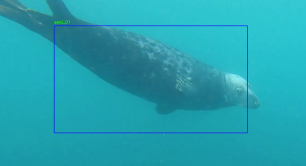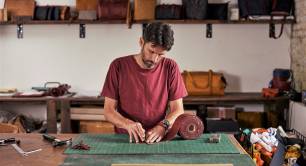The Editor’s Post: Your summer wardrobe – grape waste and banana plants?

Can next-gen materials deliver a truly sustainable fashion industry or will the 'rules of the game' stop them competing? This week’s view from the Pioneers Post newsroom.
If you’re one of those people who never fly, avoid all single-use plastic and only buy second-hand clothes – well done. Most of us, unfortunately, just won’t (or can’t) make these kinds of changes to our lifestyle. You might blame individual consumers for being short-sighted and selfish, but the reality is that the more sustainable option is very often more expensive (and sometimes less appealing).
So Katrin Ley speaks a lot of sense when she says that the fashion industry – a bigger contributor to climate change than shipping and aviation combined – isn’t going to change because of a “small niche of very passionate, convinced consumers”. Yes, many of us do avoid fast fashion, and Gen Z are making “pre-loved” outfits cool again. But for most shoppers, as Ley says in this week’s top story, it comes down to: “Is the product desirable and does it hit a certain price point?”
Ley runs an initiative called Fashion for Good, which targets “systemic change” in the industry. The vast majority of greenhouse gas emissions caused by an item of clothing comes from the materials it’s made from, so Fashion for Good supports the innovators creating new, gentler materials – using everything from algae to wild grass to fungus. Helping these startups to get noticed by fashion brands then gets investors interested, which means the startups can further develop, and ultimately lower their costs.
But the world of biomaterials is complicated, not least because that term is used to cover many different types of material – not all of them as sustainable as you might assume. Few biomaterials startups get far beyond the R&D stage. And some entrepreneurs themselves are reluctant to hype up the sector, given what they’re up against. As Bananatex co-founder Hannes Schoenegger told us, the “rules of the game” are about profit, and don’t factor in the true environmental cost of products. “To be very honest, I doubt that next-gen materials can scale as long as the rules of the game are not changed,” he told us.
In some parts of the world, those rules are changing in favour of genuine sustainability. Recently France’s Senate backed a law that would curb ultra fast-fashion. And Ley cited significant changes at EU level on waste and transparency. But recent years suggest such moves are not set in stone. The EU has already toned down its “Green Deal” ambitions, and in the past week news emerged of another blow to sustainability campaigners, as plans for a flagship law to prevent greenwashing looked set to be scrapped. My colleague Laura Joffre has the details for you.
B Lab legacy
Finally, news reached us this week that Andrew Kassoy, the co-founder of B Lab, has died. In our 2022 Pioneer Interview with Kassoy, he described the B Corp movement as “my life’s work”; that commitment to a caring community shines through in a video from B Lab marking his legacy, and in the heartfelt comments made by his supporters and friends.
Header photo: Models in Planet of the Grapes clothes made from biomaterial
Top stories this week
When fashion faces the future: The biomaterials startups going back to nature
EU anti-greenwashing law torpedoed after Commission’s shock U-turn
UK Government commits to ‘deepen collaboration with the impact economy’ in new industrial strategy
The Impact World this Week: 26 June 2025
| Ready to invest in independent, solutions-based journalism?
Our paying members get unrestricted access to all our content, while helping to sustain our journalism. Plus, we’re an independently owned social enterprise, so joining our mission means you’re investing in the social economy. |





